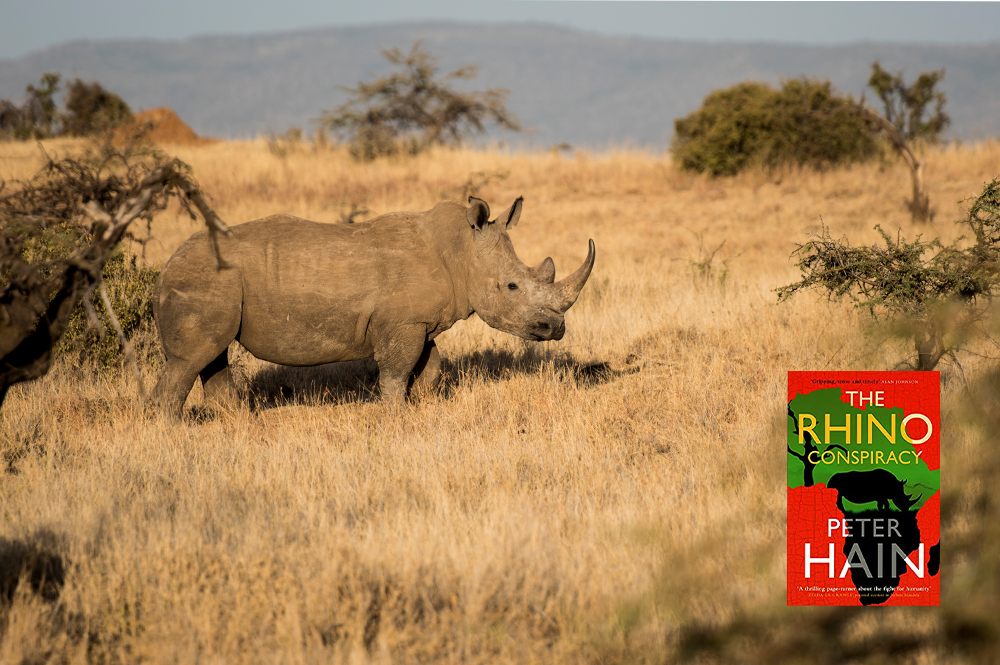Peter Hain, former UK Labour Party cabinet minister and now peer, has written a thriller about rhino poaching. Or a history of the anti-apartheid movement in South Africa. Or a critique of the way that President Zuma and senior politicians in the ANC entirely lost the national and international bank of goodwill that had been built up by Nelson Mandela and then partially frittered away by Thabo Mbeki. Take your pick – they’re all here.
Hain, whose parents were anti-apartheid campaigners in South Africa until they had to flee the country, and who then became a leading and vocal opponent of the apartheid system himself, clearly knows his stuff. At times, particularly at the beginning, when a lot of characters are introduced and the strands of the novel begin to be woven together, the developing plot is a little lost in the history lesson. It needs to be said that the politics are an intrinsic part of this story – just as Partition in India is integral to the plot of A suitable boy, recently on UK television screens – and Hain is careful to ensure that all readers are brought up to speed with South African history of the last 30 years.
The author has also done his rhino research. He weaves together many incidents from real life into the story of a poaching syndicate targeting one private rhino reserve, such as the attack on the rhino orphanage at Thula Thula, or the photographing of a rhino horn being handed over to an official outside the gates of the Vietnamese Embassy in Pretoria.
As our two main heroes, a ranger, Isaac Mkhize, working at the reserve and Thandi Matjeke, an idealistic young woman, get drawn into combating the poaching gang, there are many details that ring true, particularly the realisation that dealing with the ‘shooters’, the poachers who come into the reserve, will only get them so far, and that to make real headway, they need to work their way up the syndicate to those at the top. The tactics they use to do this – and I’ll avoid any spoilers by not discussing them here – are again based on real-life methods. In many ways, this book takes up where Julian Rademeyer’s excellent non-fiction work of 2012, Killing for profit: Exposing the illegal rhino horn trade, left off.
Some characters are referred to by titles only – the Owner, the Business Brothers, the Veteran. Hain said, in our recent online event with him and others, that the character he found hardest to write was the ranger who leaks information about patrols and the rhinos’ location to the poaching syndicate. The lure of money outweighs the ranger’s love of wildlife in a well-described conflict of emotions.
But it’s one of these anonymised characters that makes me add a caveat. Realising that the poaching gang is well-armed and highly effective, Mkhize suggests to the Owner that they hire in an assassin, known only as The Sniper. He is then supplemented with two ex-soldiers from VETPAW, a real-life organisation that “employs U.S. veterans in the fight against poaching and endangered species extinction and helps support African communities”. This trio is tasked with shooting dead, on sight, the intruders.
In practice, all of the field programmes we work with have Standard Operating Procedures (SOPs) detailing how its rangers may engage with armed intruders who resist arrest. All anti-poaching units must comply with this code of conduct. Any incidents that result in an exchange of gunfire must be reported to the police and an investigation follows to check that agreed SOPs have been followed. (One of the programmes we support, uMkhuze Game Reserve in South Africa, had a contact with poachers on Christmas Day in 2014, in which a poacher was fatally wounded after resisting arrest and pointing his weapon at the rangers. The three rangers involved were arrested themselves and held in jail while the police investigated the circumstances that led to the shooting. They were later cleared.)
This matters, because so-called “shoot to kill” policies are giving conservation a bad name. Protecting the world’s wild spaces and wildlife will only succeed if conservancies, parks and reserves have the support of their neighbours, whether those are pastoralists, villagers or townships. Extra-judicial killings of desperately poor people, who have resorted to poaching as a means to earn income to feed and clothe themselves and their families, is not the way for conservation to build societal relevance or public engagement. The contradiction between the political high ideals of Thandi Matjeke and the extreme and unlawful measures recommended by Isaac Mkhize is not entirely resolved.
This aside, there is a lot to enjoy. The descriptions of the game drives in beautiful KwaZulu-Natal and the guides’ observations on animal behaviour will appeal to all of us stuck at home in Covid-19 lockdown and make us itch to be able to travel abroad again. People in the rhino conservation world or those au fait with South African politics will enjoy working out who the lead characters are based on.
My lasting impression of The Rhino Conspiracy is that of the author’s anger. Anger at the strategic and deliberate dismantling of South Africa’s law enforcement agencies, particularly the Hawks and the National Prosecuting Authority, in order to prevent embarrassing investigations. Anger at the billions of rand that have been stolen from the country by the political elite and their corrupt business allies. And anger at the betrayal of the ANC’s ideals: the venal corruption that has undone years of campaigning for a fairer, democratic, independent South Africa.
More than a decade ago, while still an MP, Hain was on the panel of the BBC’s news programme Any Questions, being broadcast from Cheltenham Ladies’ College. He happened to leave the venue at the same time as my mother, and asked her what she thought of the event. My mother said “Cheltenham is far too polite: we let everyone off too easily.” Hain has not let anyone off easily in this book. Zuma, the Gupta brothers and his allies, will have to hope that rhino-poaching investigations, by the law enforcement agencies they did their best to knee-cap, do not lead all the way to the top.









